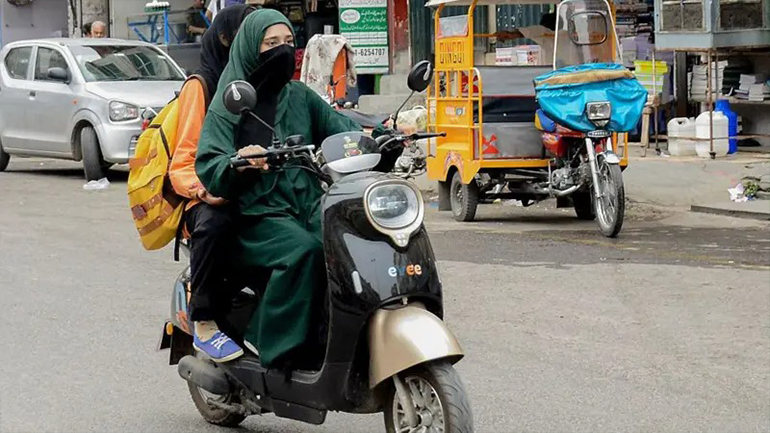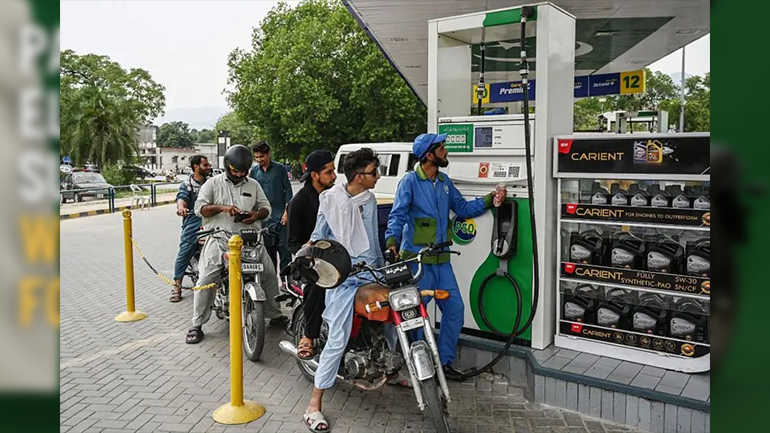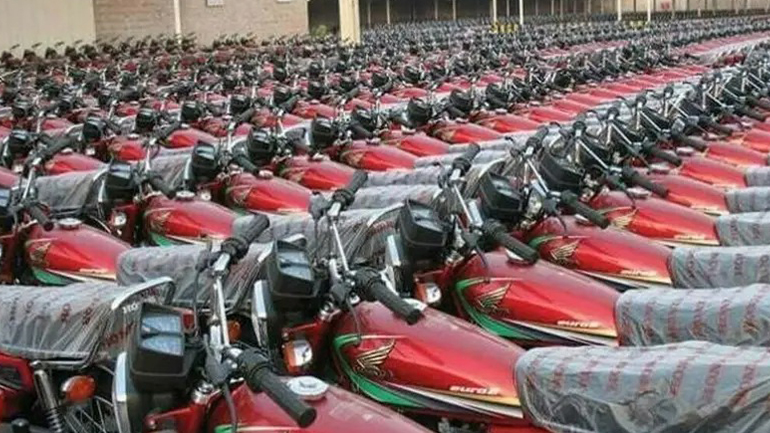Around 1.5 million motorcycles are sold annually in Pakistan, and for many years, the country’s largest motorcycle manufacturer, Atlas Honda, has maintained a strong monopoly over the industry. However, following the introduction of a draft Electric Vehicle (EV) policy in Pakistan, Honda has decided to shift its strategy and, for the first time, announced the launch of electric bikes in the country later this year. The EV policy includes proposals for special subsidies on electric bikes, scooters, and three-wheelers. According to Haroon Akhtar, Prime Minister Shehbaz Sharif has already granted principled approval of the policy, and there is hope that the cabinet will officially approve it within the next month. Although motorcycles are considered the "common man's vehicle" in Pakistan, public interest in electric bikes has remained inconsistent. According to Sabir Sheikh, head of the Motorcycle Assemblers Association of Pakistan, at least 10 Chinese companies are currently assembling electric scooters and bikes in the country. However, their monthly sales do not exceed 50,000 units.

"10 Chinese companies are assembling electric scooters and bikes in Pakistan, with monthly sales of no more than 50,000 units."
How much subsidy is proposed for electric bikes?
The recently introduced Electric Vehicle (EV) policy in Pakistan estimates that electric bikes (EVs) are up to 100% more expensive than traditional petrol-powered motorcycles. To bridge this price gap, the government has proposed a cost-sharing subsidy for low-income buyers of two- and three-wheelers. Haroon Akhtar, Special Assistant to the Prime Minister on Industry and Production, stated that under this policy, buyers of electric bikes and scooters will receive a PKR 50,000 subsidy along with access to interest-free bank loans. He admitted that it would be difficult for people to adopt EVs on their own, and it would take time. He cited examples from various countries where special incentives were introduced for electric vehicles. “We aim for 30% of all vehicles to be electric by 2030,” he said. “Without subsidies, we will not be able to shift toward EVs.” He explained that interest-free loans would be available for buyers, with the government covering the financing costs. Initially, buyers will only be required to pay 20% upfront, of which the government will cover PKR 50,000. The remaining 80% will be paid over two years. According to Haroon Akhtar, under this plan, over the next five years, more than 2.2 million bikes will be subsidized, costing the government over PKR 100 billion. In Pakistan’s 2025–26 federal budget, PKR 9 billion has been allocated for the electric vehicle scheme. With this amount, the government plans to provide 116,053 electric bikes and 3,171 electric rickshaws. In addition, PKR 20 billion has been earmarked to subsidize charging stations. Haroon Akhtar explained that no one is willing to invest in EV charging stations unless there are enough electric vehicles on the roads, and consumers are hesitant to buy EVs without adequate charging infrastructure. “To break this cycle,” he said, “we’ve decided to subsidize charging stations as well. We want to see a charging station roughly every 50 kilometers across the country.” So, how much benefit will this offer to buyers? Haroon Akhtar explained: “Currently, a petrol motorcycle costs around PKR 150,000. If someone buys an electric one, it costs about PKR 250,000. With the proposed subsidy, the price of a two-wheeler worth PKR 250,000 can be reduced to PKR 200,000, which will then be eligible for interest-free bank financing.” He also elaborated on the proposed subsidy for three-wheelers, stating: “A rickshaw runs throughout the day, and the price difference is much greater in this category. A new internal combustion engine (ICE) rickshaw costs around PKR 400,000, while an electric rickshaw is twice as expensive. In this case, a subsidy of PKR 400,000 will be provided, along with an interest-free loan.” Additionally, he mentioned that a subsidy plan for small electric cars is also under consideration.

Consumers are also hesitant to buy EVs due to the lack of electric vehicle charging stations in Pakistan.
Will this benefit buyers?
Professor Naveed Arshad from the Lahore University of Management Sciences (LUMS), who closely monitors the auto industry in Pakistan, particularly electric vehicles (EVs), says subsidies are necessary to bring down the prices of electric bikes. He explained, “Initially, the plan was for the government to fund the subsidy through its budget. However, since Pakistan is under an IMF program, it was decided to collect subsidy funds through a carbon levy instead.” He added that the subsidy will be gradually phased out over five years, to make EV technology mainstream during that period. Despite lower running costs compared to petrol, consumer interest in these expensive electric bikes remains uncertain. Sabir Shaikh, chairman of the Motorcycle Assemblers Association of Pakistan, said that people in Pakistan usually purchase 70cc motorcycles, which used to cost around PKR 150,000, while Chinese brands were even cheaper, around PKR 110,000, making them affordable. He explained, “People couldn’t afford EV scooters because the battery alone costs nearly PKR 100,000.” According to him, EV scooter sales have increased recently in both major and smaller cities in Punjab. “People there typically live in houses rather than apartments, making parking and charging easier. The travel distances are short, and the roads are relatively better.” He noted that, contrary to expectations, EV scooter sales haven’t surged in Karachi. “Most people live in apartments, where charging infrastructure is lacking.” To address this, some companies like Atlas Honda are working on battery swapping technology, allowing users to remove the battery for charging in their apartment or replace it with a pre-charged one. However, this solution is even more expensive: a single battery can cost between PKR 200,000 to 250,000. He believes that, due to limited purchasing power in Pakistan, graphene batteries will be a more viable option in the coming years. On June 24, Atlas Honda announced plans to launch electric scooters in the current fiscal year under the government’s National Electric Vehicle Policy. Atlas Honda is Pakistan’s largest motorcycle manufacturer, with a production capacity of 1.5 million units annually. Given this, Sabir Shaikh was asked why it took Pakistan’s market leader so long to enter the EV segment. He explained, “Honda is a Japanese company, but most EV technology, both in Pakistan and globally, has emerged from China. The Japanese are behind the Chinese in this field. The model Atlas Honda plans to introduce will also be developed in partnership with Chinese firms.”

Honda has announced the introduction of electric bikes in Pakistan for the first time this year.
